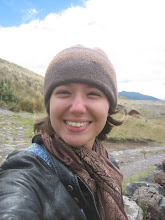South Africa is a nation that is considered to have one of the most progressive constitutions. The constitution was formed post-apartheid during 1996. As the citizens rushed to find their place, the many different political parties came together to write a constitution that everyone could stand behind. After a long year of debate, the new constitution took affect in 1997. The constitutions recognized children’s rights, defined human rights, and approved 12 official national languages. Children even sing the national anthem in three different languages. South Africa’s constitution has been raved as being clear, fair, inclusive, and pushing for a culturally pluralistic society. Unfortunately, implementing the constitution has not been as successful as making it.
At my own work place, I can see the everyday tension between groups due to language, socio-economic status, or power. I see a divide between the IsiXhosa speakers and Afrikaans speakers within Safe Line’s office. Every worker has devoted her or him self to working with or for children who have been sexually abused, but find it difficult to connect to coworkers outside their ethnic group. I find myself observing and playing a part in the larger social issues pushing down on each South African. Yes, the constitution preaches pluralism and human rights, but implementing those ideas into action and into social structures takes time. The fight for equity and acceptance is going to be a long struggle in South Africa and everywhere else.

It's been only 146 years and we are still struggling mightily. I'm reading Studs Terkel's Racism and it still applies today altho written 21 years ago.
ReplyDelete